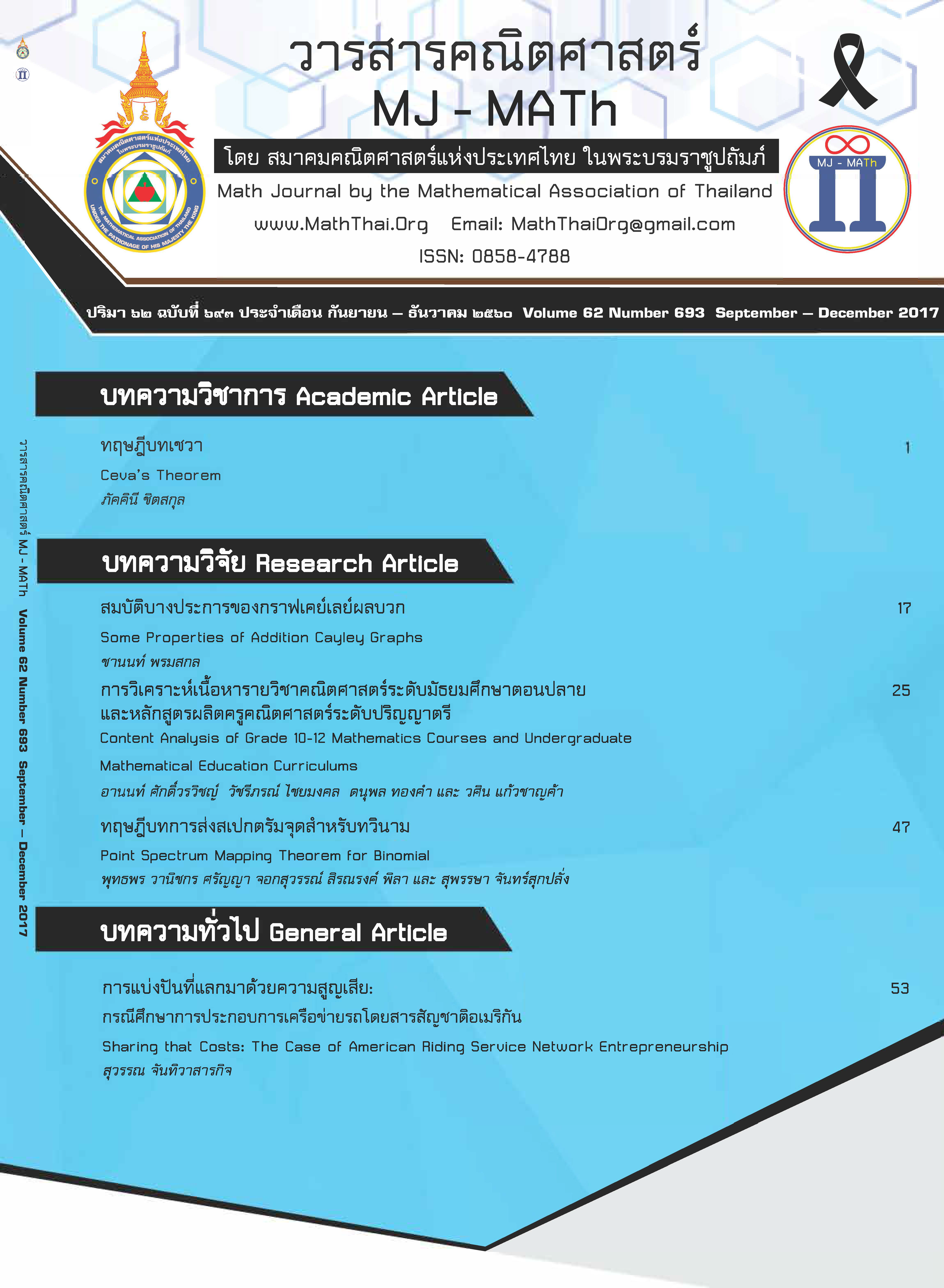Sharing that Costs: The Case of American Riding Service Network Entrepreneurship
Main Article Content
Abstract
This article is aimed to igniting and questioning the merit of share economy, an emerging business model. In doing so, economic and social issues are explored and, then, compiled to offer such impacts by employing a case study of an American entrepreneurial transportation network service, “Uber.” While gaining more popularity, the service has well-received strong disapprovals from local communities. With document analysis as a tool, literature and various media releases pertaining to Uber were sought, collection, analyzed, and forged into the very economic and social agendas. Among which are the free-rider problem on public infrastructure, eroding consumer’s rights, and life-work security.
This article, however, is not to hold against the share economy, but rather introductorily points out the economic and social implications. laborate analysis on these may be offered in this article since it would need sufficient, verified statistical information. In this regard, the author calls for concerned citizens to take part in further search investigate the very essence of the share economy.
Article Details
References
[2] M. Malhotra and M. Van Alstyne, “The Dark Side of the Sharing Economy and How to Lighten It,” Communications of the ACM, vol. 57, pp. 24-27, 2015.
[3] G. Ritzer. 2014. The “Sharing” Economy, Uber, and the Triumph of Neo Liberalism. Retrieved 1 April 2017 from https://georgeritzer.wordpress.com/2014/11/05/the-sharing-economy-uber-and-the-triumph-of-neo-liberalism/
[4] C. Rowley and F. Schneider. The Encyclopedia of Public Choice, 1st ed. pp.937-940. New York, USA: Springer, 2004
[5] ประชาชาตธิุรกจิ. 2559. แอปเรียก "แท็กซี่" คีกคัก "อเูบอร์-แกร็บ" เร่งเกม "อีซี่ แท็กซี่ ถอย. สืบค้นวันที่ 1 เมษายน 2560 จาก http://www.prachachat.net/news_detail.php?newsid=1455179161
[6] Uber. 2017. Drive with Uber in Thailand, Make Money on Your Schedule.
Retrieved 1 April 2017 from https://www.uber.com/th/drive


